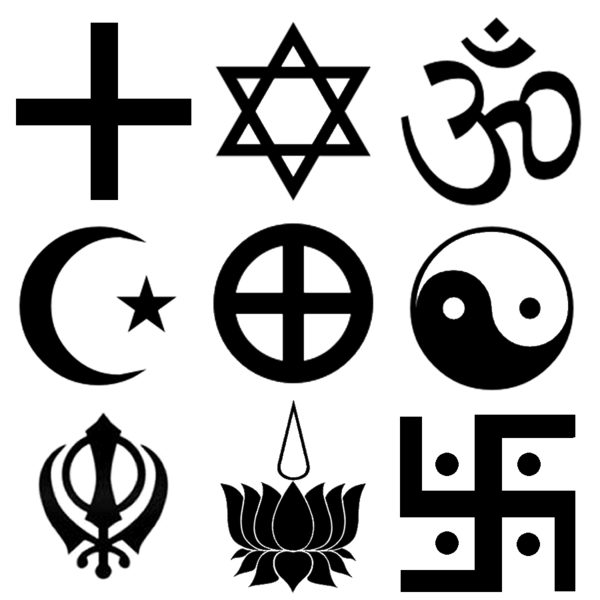Egypt, a land of ancient wonders, has long served as a crucible for diverse religious traditions. This country is not merely the cradle of civilization, but also a mosaic of beliefs that has evolved over millennia. Today, the religious landscape encompasses three major faiths: Islam, Christianity, and remnants of ancient traditions. Each of these faiths holds a profound significance, reflecting both the historical context and the spiritual yearnings of the Egyptian people.
Islam, the predominant religion in modern Egypt, plays an integral role in shaping the cultural and societal norms of its citizens. Introduced in the 7th century during the Arab conquests, it supplanted many of the ancient practices and beliefs. Islam in Egypt is characterized by its adherence to Sunni doctrines, reflecting the teachings of the Qur’an and the exemplary life of the Prophet Muhammad. The faith is interwoven into the daily lives of Egyptians, influencing everything from legal systems and educational frameworks to the arts and interpersonal relationships.
Central to the Islamic tradition is the concept of Tawhid, the absolute oneness of God. This monotheistic foundation inspires a profound sense of community amongst Muslims, both in Egypt and around the globe. The five pillars of Islam—Shahada (faith), Salah (prayer), Zakat (charity), Sawm (fasting), and Hajj (pilgrimage to Mecca)—serve as essential acts of worship that foster a shared identity and social cohesion among practitioners. The communal prayers on Fridays, particularly at the historic Al-Azhar Mosque, are illustrative of the public devotion to faith that permeates Egyptian society.
Contrastingly, Christianity presents a rich tapestry woven into the very fabric of Egypt’s heritage. Originating in the Eastern Mediterranean, Christianity found fertile ground in Egypt during the 1st century AD. The Coptic Orthodox Church, one of the oldest Christian communities, claims its roots in the teachings of Saint Mark, who is believed to have brought Christianity to Egypt. The Copts, as they are known, maintain a distinctive identity, marked by unique liturgical practices and a rich cultural heritage, distinguished from Western Christianity.
The theology of Christianity emphasizes the redemptive love of God, culminating in the life, death, and resurrection of Jesus Christ. Egyptian Christians partake in a nuanced spiritual life that includes deep-seated traditions of fasting, feasting, and communal worship. The celebration of Christmas and Easter is imbued with cultural significance, and the Coptic calendar is populated with festivals and events that reflect the synchrony of Christian and local traditions. These observances not only reinforce the faith of the Copts but also highlight their historical resilience in the face of adversity.
However, the intertwining of Islam and Christianity in Egypt reveals a complex relationship marked by both tension and cooperation. Interreligious dialogues are commonplace in urban settings, allowing for mutual respect and understanding. Nonetheless, instances of sectarian conflict have arisen, often fueled by political and social strife rather than religious doctrine itself. The notion that both faiths share Abrahamic roots cultivates a certain curiosity, prompting a deeper exploration of fundamental beliefs and practices. Such comparative analysis underscores the importance of tolerance and peaceful coexistence in an increasingly pluralistic society.
Amidst Islam and Christianity, the vestiges of ancient Egyptian spirituality still linger in the cultural consciousness of the nation. Ancient traditions, often characterized by polytheism and a rich pantheon of deities, provided answers to profound existential questions in a once-thriving civilization. The worship of gods like Osiris, Ra, and Isis reflected a worldview deeply attuned to the cosmos and nature. The ancient practices, such as mummification and elaborate funerary rites, underscored a preoccupation with the afterlife, illustrating humanity’s timeless quest for meaning beyond the corporeal realm.
The fascination with ancient Egyptian religion persists, echoing in the artworks, literature, and modern spiritual practices. Symbols and motifs from this era are often repurposed in contemporary culture, fostering a sense of heritage while sparking interest in the mysteries of the past. Ancient temples and tombs, now archeological sites, invite exploration and reverence. They represent a foundational narrative that coexists with the religious practices of today, offering a poignant reminder of the continuity and change within Egypt’s religious landscape.
In light of these diverse traditions, it becomes evident that religion in Egypt is not monolithic; rather, it is a dynamic interplay of belief systems that inform the ethics, values, and identity of its people. The enduring significance of religion shapes everyday life, influencing everything from political discourse to artistic expression. While Islam and Christianity dominate the current religious scene, the echoes of ancient traditions remind us of a time when Egypt was a cultural crossroads, a place where gods and humanity coexisted in harmony.
The phenomenon of religious pluralism offers rich avenues for exploration. It stands as a testament to the remarkable ability of Egyptians to negotiate their beliefs in a rapidly changing world. Each faith, while distinct, contributes to a shared narrative, revealing a society grappling with its identity and heritage. This intricate tapestry—a blend of ancient customs and modern religious practices—invites both contemplation and respect, urging observers to recognize the profundity of belief in shaping a nation’s character and its people’s destiny.



